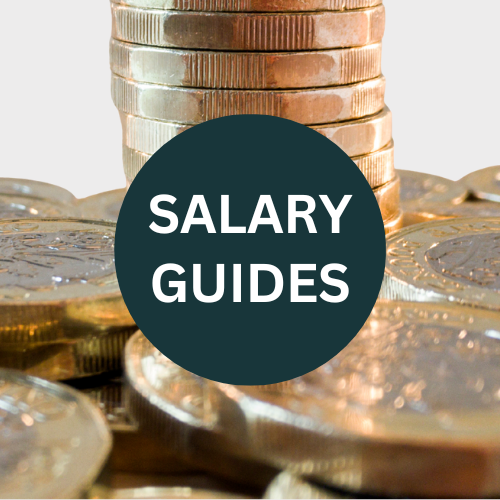Unmasking the Silent Epidemic
February 28th 2024 | Posted by Mark Geraghty
The Shocking Normalisation of Everyday Sexual Harassment Against Women
I’m not necessarily qualified to comment from a point of personal experience on the following, but as a father of two young women, it is hard not to feel disheartened that women still face the pervasive issue of everyday sexual harassment. What makes this grim reality even more alarming is the disturbingly casual acceptance of such behaviour as the norm in our society.
This normalisation not only perpetuates a cycle of abuse but also poses a damning indictment of our collective failure to address and rectify this deeply ingrained issue.
Both my daughters are independent young women, and it was only when discussing a recent incident that had appeared on the news about sexual assault, did it open the conversation up for them to share their own everyday experiences. “Every day?” (My response).
I’m not ignorant enough to think that this doesn’t happen, but following further conversations with friends, co-workers and clients, it is clear that rather than a decline in incidents of harassment, they are increasing. I’d like to think if I witnessed something, I would step in or at least speak up, but it would seem that this rarely happens in our “civilised world”.
As we celebrate the progress made in promoting gender equality, it is crucial to acknowledge and address the widespread issue of everyday sexual harassment that women continue to face in various aspects of their lives. From the workplace to public spaces and even more common place now online platforms, women grapple with unwarranted and unwanted advances, inappropriate comments, and invasive behaviour.
The Shocking Normalcy
From catcalls on the streets to inappropriate comments in the workplace and online, women are forced to navigate a world where sexual harassment has become an expected part of their daily lives. The normalisation (and I use that term carefully as it shouldn’t be “normal”) of such behaviour is deeply entrenched in societal attitudes, creating an environment where victims are often silenced, and perpetrators go unchecked.
One of the most shocking aspects of this normalisation is the subtle dismissal of these incidents as mere inconveniences or, worse yet, as compliments, albeit they are not experienced as such. Women are frequently told to take these experiences lightly, to toughen up, or even to appreciate the attention. This dismissal only serves to reinforce the idea that women should accept harassment as an unavoidable part of their existence.
The Damaging Impact on Society
The normalisation of everyday sexual harassment has far-reaching consequences for both individuals and society as a whole. At the individual level, women who endure such harassment may suffer from psychological distress, anxiety, and a diminished sense of self-worth. The fear of harassment can restrict their freedom, making them hesitant to pursue certain careers, engage in public spaces and even change their online profiles or behaviours.
On a broader scale, the normalisation of sexual harassment contributes to a culture that perpetuates gender inequality. When women are made to feel unsafe or objectified in public spaces, it hinders their full and equal participation in society. It sends a damaging message that their voices are less important, their experiences less valid, and their rights less protected.
Despite strides in workplace gender equality, women still encounter sexual harassment in their job. Subtle, and even not-so-subtle comments, lewd gestures, and inappropriate advances create a hostile environment, hindering professional growth and wellbeing. Microaggressions, such as unwarranted touching or comments about appearance, contribute to an atmosphere where women may feel uncomfortable, vulnerable, and disempowered. Employers must prioritise education and implement robust anti-harassment policies to ensure safe and inclusive workplaces.
Commuting Challenges:
For many women, incredibly the daily commute becomes a battleground for fending off unwanted attention. Catcalling, leering, and inappropriate touching are distressingly common experiences as my daughters have explained in detail. A client of mine shared that often when travelling on the underground, she would feel men rubbing and brushing themselves against her and that any defensive reaction made, was met with an innocent plea and a collective view that she had overreacted and was clearly an angry woman? Once told – “Don’t flatter yourself luv”.
Street Harassment
Harassment on the streets is an unfortunate reality for countless women worldwide. Unsolicited comments on appearance, explicit gestures, and invasive behaviour are constant companions to women navigating public spaces. This not only infringes upon their right to move freely but also perpetuates a culture where women are objectified and devalued. Community engagement, bystander intervention programs, and legal measures are essential components of combatting street harassment.
From a digital perspective the reach of sexual harassment into the lives of women through online platforms continues to increase. Cyberstalking, explicit messages, and the sharing of non-consensual intimate content “nudes” contribute to a toxic online environment. Social media platforms and online communities must prioritise user safety by implementing robust reporting mechanisms, swiftly addressing harassment complaints, and educating users on respectful online behaviour.
Breaking the Silence
Addressing the normalisation of everyday sexual harassment requires a multifaceted approach that involves individuals, communities, and institutions. It begins with acknowledging that this is not a minor issue but a deeply ingrained problem that demands attention and action.
Education plays a crucial role in challenging societal attitudes. Schools and workplaces must implement comprehensive programs that educate individuals about consent, respect, and the consequences of harassment. By fostering a culture of empathy and understanding, we can begin to dismantle the foundations that allow harassment to persist. Institutions and organisations must take a zero-tolerance stance against sexual harassment. Policies and procedures for reporting and addressing incidents must be clear, accessible, and followed rigorously. Creating safe spaces for victims to come forward without fear of retaliation is essential in breaking the cycle of silence.
The normalisation of everyday sexual harassment against women is a stark reminder of the work that still needs to be done to achieve true gender equality. It is everyone’s responsibility to challenge ingrained attitudes, educate future generations, and hold perpetrators accountable. Only through sustained effort and a commitment to change can we hope to create a society where every woman can live free from the daily threat of harassment. As we mark progress, let us remain vigilant in dismantling the barriers that perpetuate everyday sexual harassment, ensuring a future where equality and dignity prevail for everyone.
Writing this, I do feel unqualified to comment, an imposter expressing serious concerns not just for my daughters but all women. I can’t for one moment place myself in a situation where I could claim to experience and feel the effects of the harassment women do. It also concerns me that as this is clearly an everyday issue for women, in the main they have simply “learned to live with it” in the knowledge that any reaction is likely to fall on deaf ears or even effect their careers or perception of them by others. Collectively I expect they would require all women to be brave enough to stand up to the incidents, but I can totally understand why many won’t. I hope that anyone who does read this and witnesses any of the above, regardless of setting can have the courage to speak out. Until we do, until we shame those committing these crimes (yes, they are crimes) until we challenge what is acceptable and what isn’t, nothing will change.
Men, we need to be better. If it means policing fellow colleagues, strangers on the train or in any environment, we have to.
Mark Geraghty
Partner
Executive Recruit Ltd
Web: www.executiverecruitment.co.uk
LinkedIn Business: www.linkedin.com/company/executive-recruit
Twitter: www.twitter.com/Exec_Recruit





